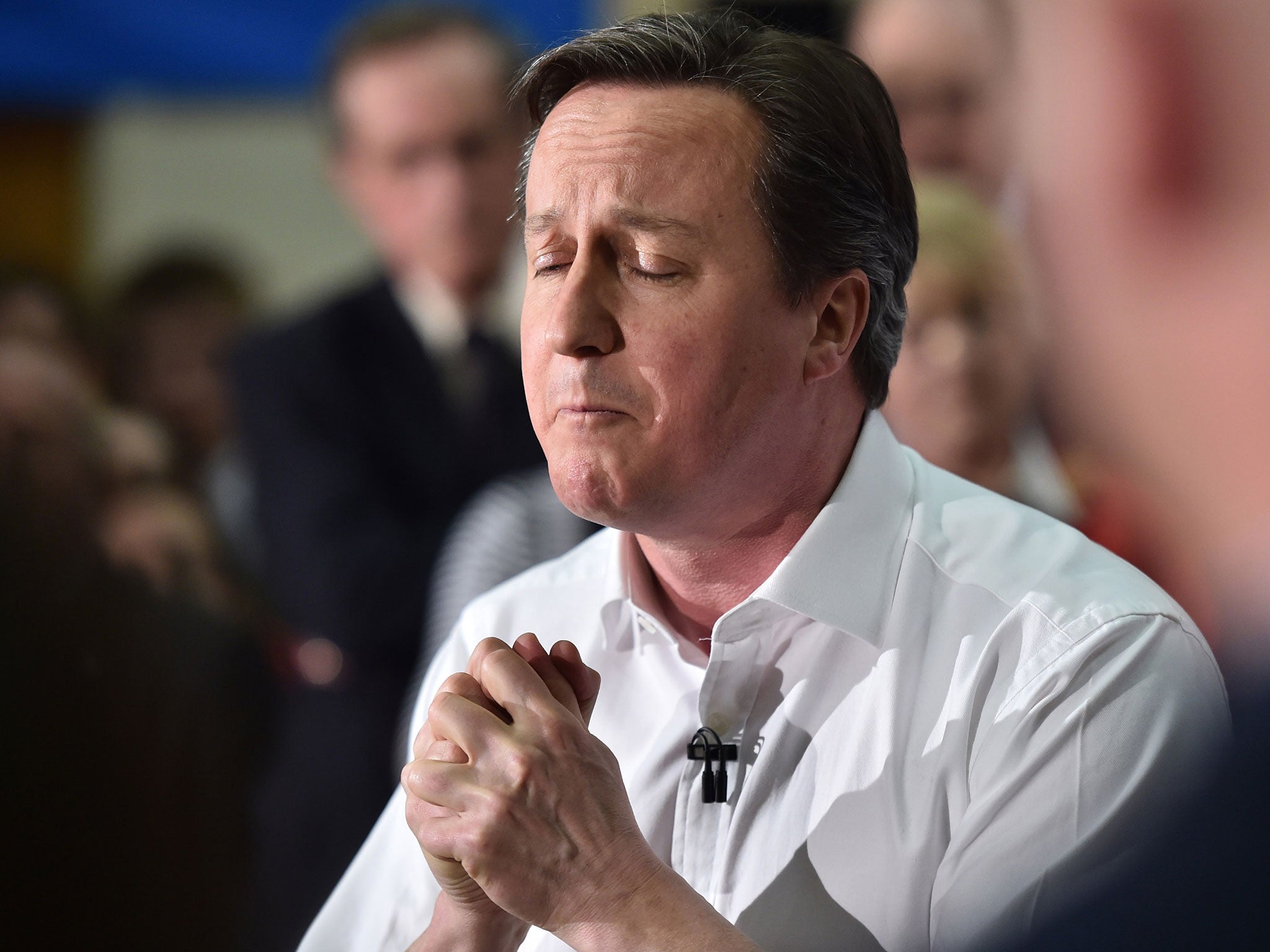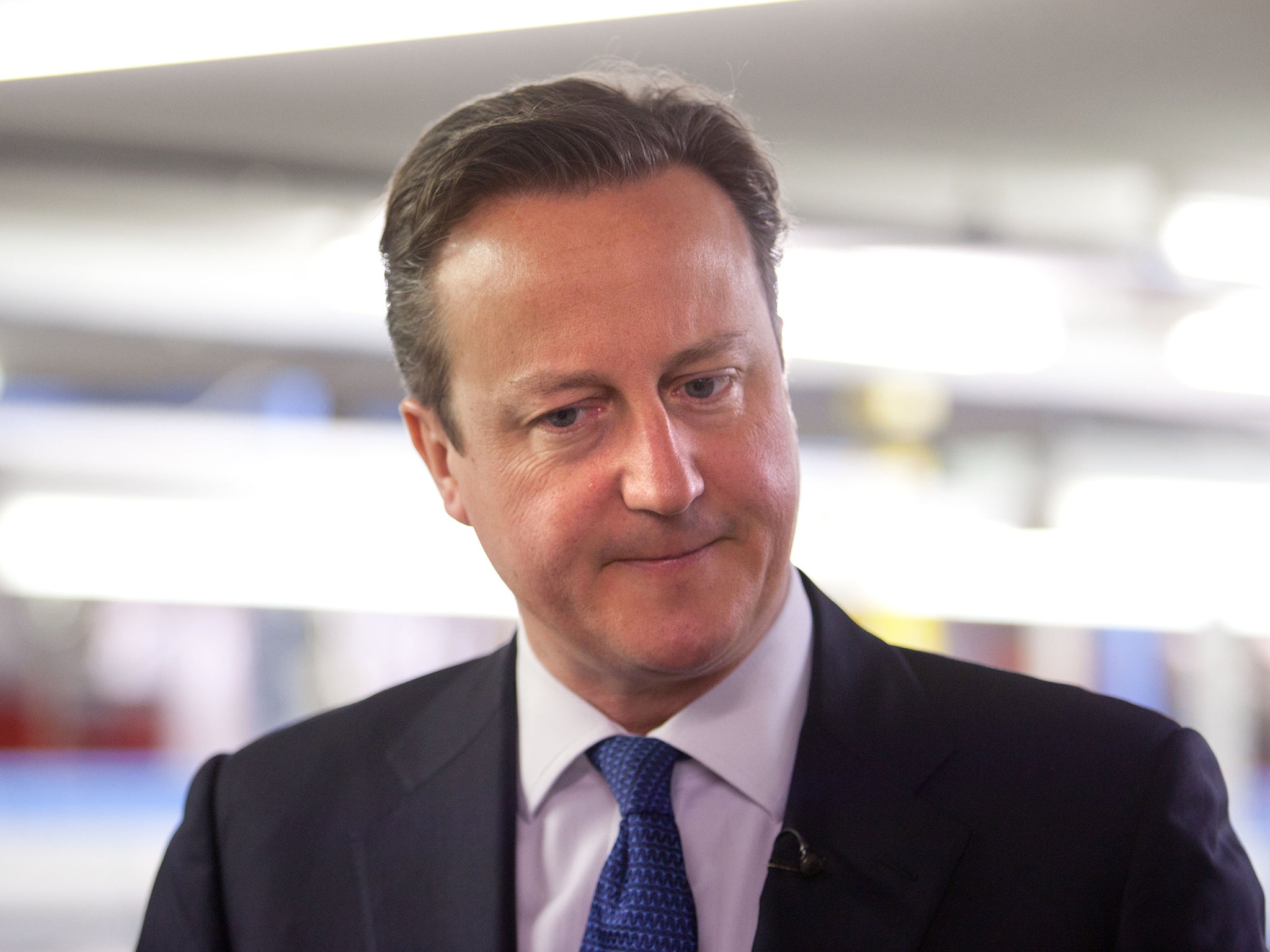David Cameron's numbers problem: From NHS spending to immigration caps – how the Tories can't get their figures straight
Five stats that show you shouldn't always take the Conservatives at face value

Your support helps us to tell the story
From reproductive rights to climate change to Big Tech, The Independent is on the ground when the story is developing. Whether it's investigating the financials of Elon Musk's pro-Trump PAC or producing our latest documentary, 'The A Word', which shines a light on the American women fighting for reproductive rights, we know how important it is to parse out the facts from the messaging.
At such a critical moment in US history, we need reporters on the ground. Your donation allows us to keep sending journalists to speak to both sides of the story.
The Independent is trusted by Americans across the entire political spectrum. And unlike many other quality news outlets, we choose not to lock Americans out of our reporting and analysis with paywalls. We believe quality journalism should be available to everyone, paid for by those who can afford it.
Your support makes all the difference.The general election campaign has only officially been underway for two days, yet we’ve already had plenty of examples as to why it’s difficult to take a politician entirely at their word.
As Prime Minister, David Cameron’s grasp of the statistics is understandably under the most scrutiny – which is why his claim that a Labour victory would see tax rises of £3,000 for working families has been such a source for contention.
Ed Miliband’s party have called it “totally false”, while even the independent Institute for Fiscal Studies (IFS) has said that there is nothing to suggest it would be the case. The IFS added that Mr Cameron’s claim was “unhelpful” and the maths involved not “sensible”.
So are there other instances where Mr Cameron has seemingly messed up the numbers? We collaborated with the independent factchecking organisation Full Fact to investigate.
‘Record employment rate’
On Monday, the Tories tweeted that “employment [is] at an all-time high”, with 1.9 million more people in work than in the three months prior to the last election.
But, according to Full Fact, this is actually not very interesting – because there is also a record number of people in the country, meaning records totals of people in work are constantly being broken.
On the more interesting measure of employment rate, there are two measures that can be used. One, the percentage of people aged 16-64, is indeed at record levels. But another – for those from 16 to the State Pension Age (and therefore taking into account different retirement ages for men and women) does not show a record.
‘£13bn more on the NHS’
This morning on BBC Radio 4’s Today programme, David Cameron boasted that his Government had increased NHS spending by £12.7 billion – and that’s right.
Spending on the health service increased from £100bn in 2010/11 to a planned £113 billion in 2014/15.
But in the Coalition Agreement, Mr Cameron pledged to guarantee “real term” increases on health spending – factoring in inflation.
It therefore seems inconsistent to not factor in inflation this morning – if he had done, Mr Cameron would have said spending on the NHS had only really increased by £5 billion – but that doesn’t sound quite as impressive.
‘Net migration into tens of thousands’
A famous objective expressly put forward by the Government was “that net migration be reduced to the tens of thousands by the end of the current Parliament”. Generally, this has been taken to mean an objective of net migration under 100,000.
On Tuesday, Nigel Farage said “immigration is three times higher than the Tories promised”.
That’s not quite right – since an objective is not exactly the same as a promise – but it is also true that it stood at 298,000 in the 12 months ending September 2014, well above what Mr Cameron was aiming for.
‘Taxes an extra £3,000 under Labour’
David Cameron said on Monday that Labour’s plans will lead to an average tax rise of £3,000 in total for every working household in Britain between 2016 and 2020, based on lots of assumptions about Labour’s policies that Labour hasn’t confirmed.
The IFS said that even if we took the Tory assumptions at face value “in a world in which taxes were to rise by £15 billion, one would usually describe this as leaving households worse off by £560 a year” – not £3,000 just including working households.
The Conservatives also assume that Labour will not raise any of that tax from business.
And it assumes that Labour would split spending cuts and tax rises 50:50.
The full breakdown of the dodgy assumptions made can be found on Full Fact here and the IFS website here.
‘We halved the deficit’
Finally, we take another look at a claim made at the end of last year, when David Cameron said “already we have cut the deficit in half, and we have set out clear steps to finish the job by 2018”.
That claim – simply “the deficit halved” – also appeared on a Conservative campaign poster.
Full Fact said in December that it was accurate that the deficit was expected to be half of its 2009/10 peak by the end of the financial year – but only relative to GDP.
“It would be helpful if politicians could avoid loose references to ‘the deficit’ without clarifying which measure is being used,” Full Fact said.

Join our commenting forum
Join thought-provoking conversations, follow other Independent readers and see their replies
Comments